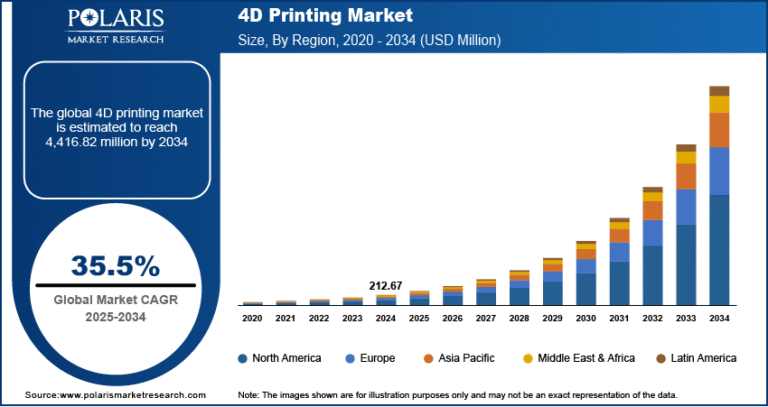Brain-Computer Interface (BCI) Gaming Market Projected to Reach USD 927.25 Million by 2034, Growing at a CAGR of 20.5%

Global Brain-Computer Interface (BCI) Gaming Market size and share is currently valued at USD 144.18 million in 2024 and is anticipated to generate an estimated revenue of USD 927.25 million by 2034, according to the latest study by Polaris Market Research. Besides, the report notes that the market exhibits a robust 20.5% Compound Annual Growth Rate (CAGR) over the forecasted timeframe, 2025 – 2034
Market Definition
The brain-computer interface (BCI) gaming market focuses on technologies that allow users to control games using neural activity rather than traditional input devices. BCIs interpret brain signals—captured through non-invasive methods like EEG—to interact with digital environments in real time. This market represents the intersection of neuroscience, gaming, and human-computer interaction, enabling new levels of immersion and accessibility. Applications range from enhancing gameplay experiences to helping individuals with disabilities participate in gaming. Growth is driven by advancements in AI, machine learning, signal processing, and wearable neurotechnology. Developers are creating both entertainment-focused games and serious games for cognitive training, therapy, and education. The market includes hardware (headsets), software, and platform developers. While still emerging, increasing investment, consumer interest in futuristic interfaces, and broader adoption of neurotechnology are expanding the BCI gaming landscape. As technology matures, BCI could redefine the gaming experience, making it more intuitive, responsive, and inclusive.
Key Report Highlights
- The report highlights the key region that accounts for the highest revenue share in the global Brain Computer Interface (BCI) Gaming market.
- It identifies the leading country within this region that makes a significant contribution to the market’s overall performance.
- The report outlines the dominant segment that holds a major share of the market.
- It also emphasizes the fastest-growing segment projected to gain strong traction during the forecast period.
- Qualitative and quantitative market analysis have been used to provide an in-depth understanding of the market.
Market Overview: Key Figures at a Glance
- Market Value in 2024: USD 144.18 million
- Projected Market Size in 2034: USD 927.25 million
- Anticipated CAGR (2025-2034): 20.5%
Get access to the full report or request a complimentary sample for in-depth analysis:
Market Growth Drivers
The growing convergence of neuroscience and immersive technology is a major driver of the brain-computer interface (BCI) gaming market. BCIs enable direct communication between the brain and external devices, offering gamers a hands-free, immersive experience that responds to neural activity. As virtual reality (VR) and augmented reality (AR) technologies evolve, BCIs present new opportunities for intuitive, adaptive, and emotionally responsive gameplay. Rising consumer interest in futuristic and experiential gaming is pushing developers to explore novel interaction methods beyond conventional controllers. Advances in wearable EEG headsets, AI, and machine learning are making BCI devices more affordable, portable, and accurate. In addition to entertainment, BCI gaming is gaining traction in neurofeedback therapy and cognitive rehabilitation, expanding its use beyond traditional markets. The increasing popularity of e-sports and next-gen gaming platforms also boosts demand. As user experience becomes central to game design, BCI integration is set to revolutionize how players engage with digital environments.
Market Key Players
The competitive landscape features a mix of long-standing companies and emerging contenders. Leading players are actively pursuing R&D initiatives and strategic moves to strengthen their market position. Notable participants include
- BrainCo, Inc.
- Cognionics, Inc.
- Emotiv Systems
- InteraXon Inc. (Creator of Muse)
- Mindfield Biosystems, Inc.
- MindMaze SA
- Neurable, Inc.
- NeuroSky, Inc.
- NextMind, Inc.
- OpenBCI, LLC






